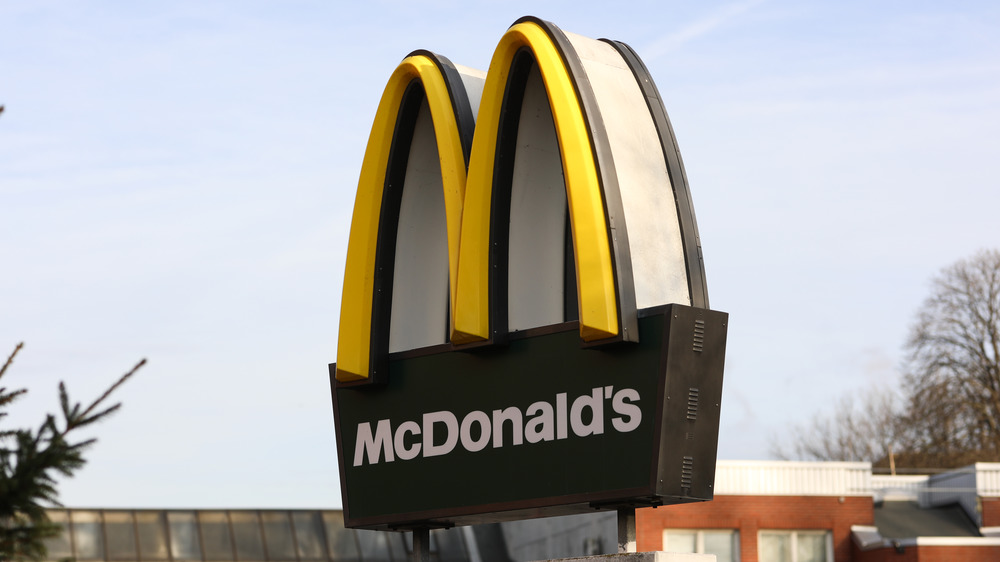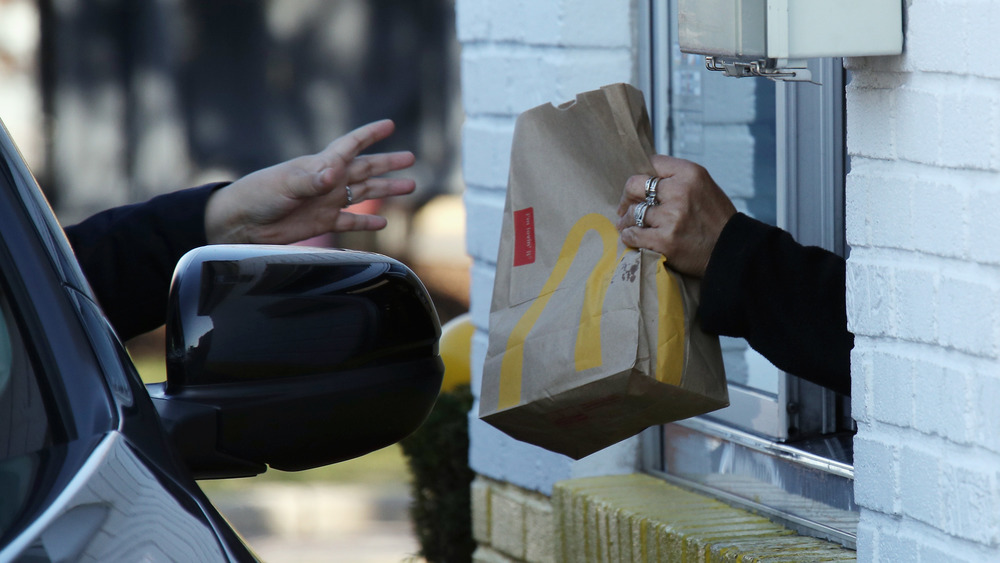McDonald's Tried To Remove This Word From The Dictionary
Over the years, McDonald's has introduced many words that have become familiar worldwide. Big Mac, McNugget, McChicken, and McCafé are just a small sampling of the fast food chain's contributions to our everyday language. But not every word starting with "Mc" has McDonald's beaming with pride. In fact, they once tried to sue the dictionary over one.
The specific word that drew ire from the higher-ups at McD's was "McJob." Reader's Digest explains that the term was included in the Oxford English Dictionary in 2001 and Merriam-Webster's Collegiate Dictionary in 2003. Merriam-Webster defines McJob as "a low-paying job that requires little skill and provides little opportunity for advancement."
Upon hearing about "McJob" being in not one but two major dictionaries, the McDonald's CEO at the time, Jim Cantalupo, penned a lengthy open letter about it (via QSR). In it, he calls the term a "slap in the face" to restaurant workers, and proposes McJob be redefined to mean a position that "teaches responsibility." According to Mental Floss, McDonald's UK even considered lawyering up to get the definition changed.
The real conditions of McJobs
In 2003, the year Merriam-Webster added "McJob," the average wage for fast food cooks was $7.23 an hour — the lowest wage out of all jobs, according to the US Bureau of Labor Statistics. Fast food prep workers and servers didn't fare much better, per the Bureau, earning a paltry $7.34 an hour.
Not much has changed. The Atlantic reported in 2011 that McDonald's workers made $7.72 an hour on average. In 2019, McDonald's workers made about $19,000 a year, which averages out to about $9 hourly. And in 2020, during the coronavirus pandemic, McDonald's employees reported smaller paychecks and difficulties staying safe on the job.
Though the term recalls the Big Mac chain, McJob isn't solely used to dig at McDonald's. In a feature on wage decreases and poor working conditions at Amazon, the Chicago Tribune proclaims the company turned a "middle-class warehouse career into a McJob."
Try as McDonald's might to stop the legitimization of "McJob," the word remains in the dictionary today and seems to be staying there. If the realities for fast food workers change, perhaps Merriam-Webster will follow suit.

